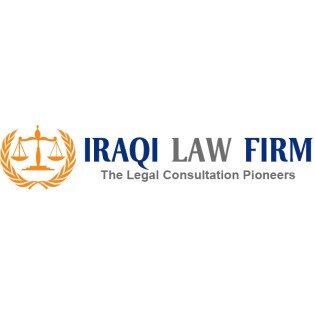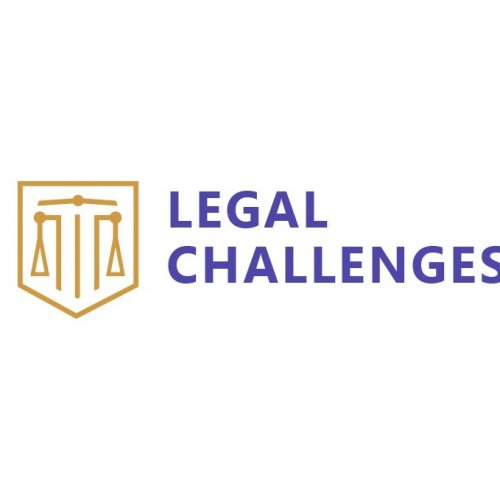Best Structured Finance Lawyers in Iraq
Share your needs with us, get contacted by law firms.
Free. Takes 2 min.
Or refine your search by selecting a city:
List of the best lawyers in Iraq
About Structured Finance Law in Iraq
Structured finance refers to a complex range of financial instruments and transactions used to manage risk and facilitate capital raising. It often involves pooling financial assets and creating securities backed by those assets. In Iraq, structured finance is gradually emerging as a vital tool for businesses, banks, and investors. This area intersects with banking law, securities regulation, and corporate law.
Although the market is still developing compared to more mature economies, the growth of oil and infrastructure projects and the efforts to rebuild the Iraqi financial sector are creating opportunities for structured finance transactions. The regulatory environment is evolving, and local laws are being updated to accommodate these sophisticated financial products.
Why You May Need a Lawyer
Engaging in structured finance transactions in Iraq can be complex due to local legal frameworks, documentation requirements, and negotiations with various stakeholders. Here are common situations where you may need legal support:
- Planning or investing in large-scale infrastructure, real estate, or energy projects.
- Securitizing assets or arranging syndicated loans within the local market.
- Structuring cross-border financing deals involving foreign investors or multi-national entities.
- Navigating Islamic finance structures that can be part of Iraqi finance deals.
- Complying with regulatory filings and meeting Central Bank requirements.
- Resolving disputes in case of defaults or interpretation of financial documents.
- Assessing risks and ensuring compliance with sanctions or anti-money laundering regulations.
A lawyer can help structure deals, review documentation, manage regulatory filings, and protect your interests throughout the process.
Local Laws Overview
Iraqi structured finance law is shaped by several key legal instruments, including:
- Central Bank Law - Governs banking activities and supervises financial institutions.
- Banking Law No. 94 of 2004 - Sets regulations for lending, asset securitizations, and the operation of banks, including the syndication of loans.
- Iraqi Companies Law No. 21 of 1997 - Describes the formation and operation of corporate entities that may be involved in finance transactions.
- Securities Commission Law - Regulates the issuance and trading of securities, vital for securitization and capital market transactions.
- Islamic Finance Regulations - Address Sharia-compliant products, such as sukuk, commonly used in Iraq’s financial sector.
- Anti-Money Laundering and Sanctions Laws - Set out requirements for due diligence and compliance.
In Iraq, obtaining regulatory approval may be required for some structured finance products or cross-border deals. The legal landscape is influenced by ongoing reforms as the government works to attract foreign investment and stabilize the financial sector.
Frequently Asked Questions
What is structured finance in Iraq?
Structured finance refers to sophisticated financial instruments and arrangements, such as securitization, asset-backed securities, and syndicated loans, often used to fund large projects or manage risk in Iraq’s evolving financial market.
Can foreign investors participate in structured finance transactions in Iraq?
Yes, foreign investors can engage in structured finance deals, subject to compliance with local regulations, foreign investment laws, and where necessary, approval from regulatory authorities.
What is securitization, and is it possible in Iraq?
Securitization is the process of pooling financial assets and issuing securities backed by those assets. While Iraqi law does not have a specific securitization statute, certain asset-backed transactions are possible using existing banking and securities laws.
Are Islamic finance products like sukuk available in Iraq?
Yes, Islamic finance products such as sukuk (Islamic bonds) are used in Iraq. Both conventional and Sharia-compliant structures are available, and legal counsel is crucial to ensure compliance with religious and civil requirements.
What are the regulatory bodies involved in structured finance in Iraq?
Key regulators include the Central Bank of Iraq, Iraq Securities Commission, and Ministry of Finance. Depending on the nature of the transaction, other entities may also be involved.
Are international laws and standards applicable in Iraq’s structured finance deals?
International standards may be referenced in Iraqi agreements, especially in cross-border transactions. However, compliance with local Iraqi law is mandatory.
Can structured finance solutions be used for public infrastructure projects?
Yes, the Iraqi government and private sector use structured finance mechanisms, such as project finance and public-private partnerships, to support infrastructure development.
Is it necessary to have local legal representation for structured finance deals?
It is highly advisable to engage local legal counsel to navigate Iraqi law, ensure proper documentation, and interact with regulators.
What are the typical risks associated with structured finance in Iraq?
Risks include regulatory changes, enforcement of contracts, political stability, currency fluctuations, and compliance with anti-money laundering laws. A lawyer can help you assess and manage these risks.
How long does it typically take to complete a structured finance transaction in Iraq?
Timeframes can vary significantly based on the deal’s complexity, regulatory approvals, and the parties involved. Engaging experienced advisors can help reduce delays.
Additional Resources
For further information or support related to structured finance in Iraq, you can contact or consult the following organizations:
- Central Bank of Iraq - Regulator for banking and finance activities.
- Iraq Securities Commission - Oversees the securities market and listings.
- Ministry of Finance - Involved in government finance and related regulations.
- Iraqi Bar Association - For finding qualified legal advisors.
- Iraq Stock Exchange - For information on securities and investment products.
- Chambers of Commerce and Investment Promotion Agencies - For business-specific resources.
Additional guidance may be available from international organizations working on legal and financial sector development in Iraq.
Next Steps
If you need legal assistance with structured finance in Iraq, consider the following steps:
- Identify the nature of your financial transaction or project and outline your objectives.
- Seek out local law firms or legal advisors with experience in structured finance and cross-border transactions.
- Prepare all available documentation and information related to your proposed deal.
- Consult with your chosen lawyer to assess compliance requirements, risks, and deal structure.
- Engage your legal advisor early in the process to ensure smooth negotiations with counterparties and regulators.
By taking a proactive approach and securing professional advice, you can manage the complexities of structured finance transactions and ensure compliance with Iraqi law.
Lawzana helps you find the best lawyers and law firms in Iraq through a curated and pre-screened list of qualified legal professionals. Our platform offers rankings and detailed profiles of attorneys and law firms, allowing you to compare based on practice areas, including Structured Finance, experience, and client feedback.
Each profile includes a description of the firm's areas of practice, client reviews, team members and partners, year of establishment, spoken languages, office locations, contact information, social media presence, and any published articles or resources. Most firms on our platform speak English and are experienced in both local and international legal matters.
Get a quote from top-rated law firms in Iraq — quickly, securely, and without unnecessary hassle.
Disclaimer:
The information provided on this page is for general informational purposes only and does not constitute legal advice. While we strive to ensure the accuracy and relevance of the content, legal information may change over time, and interpretations of the law can vary. You should always consult with a qualified legal professional for advice specific to your situation.
We disclaim all liability for actions taken or not taken based on the content of this page. If you believe any information is incorrect or outdated, please contact us, and we will review and update it where appropriate.
Browse structured finance law firms by city in Iraq
Refine your search by selecting a city.

















